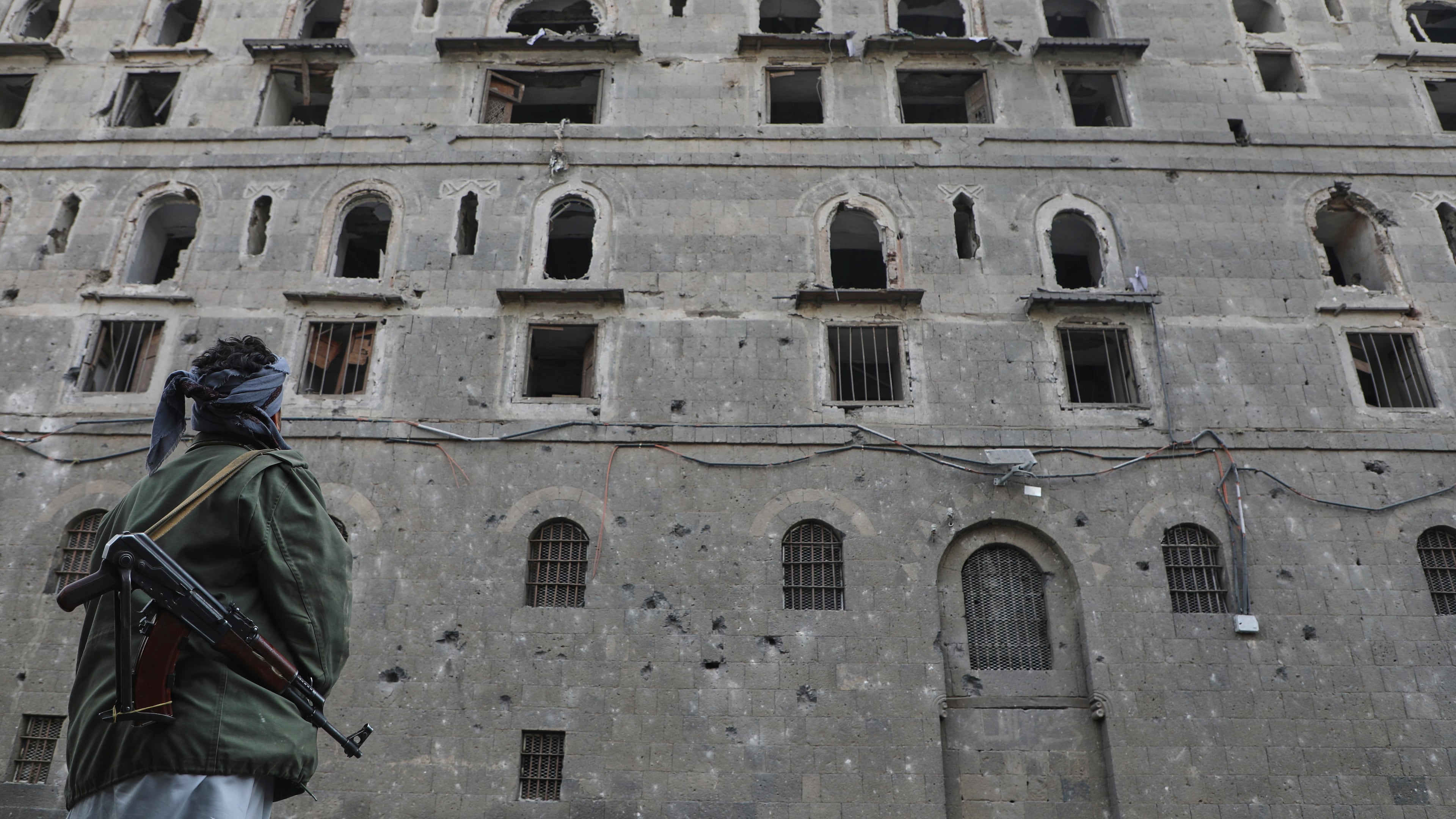UNICEF official is released in Yemen and returns home to Jordan, officials say

CAIRO (AP) — The deputy director of the UNICEF office in Yemen was released from detention by Houthi rebels in the Yemeni capital city and returned home Thursday to Jordan, the Jordanian foreign ministry said.
The freeing of Jordanian citizen Lana Shukri Kataw was announced at a time of high tensions in Yemen and the larger region. Israeli strikes on Yemen on Wednesday killed at least 35 people and wounded more than 130 others.
Kataw was one of at least 19 U.N. staffers who were detained on Aug. 31 when the Iranian-backed Houthi rebel group raided their offices in the capital city of Sanaa.
The Houthis have not given a reason for taking the U.N. staffers hostage. But the raids were the latest in a long-running Houthi crackdown on the U.N. and other international organizations as well as diplomats working in rebel-held areas.
In 2024, they detained at least 11 U.N. employees and days later said they had arrested suspected members of an espionage network. The United Nations has denied those allegations.
The raids on offices of the United Nations’ food, health and children’s agencies in Sanaa followed Israel’s killing of Houthi Prime Minister Ahmed al-Rahawi and several Cabinet ministers in an airstrike the week before.
It was not immediately clear exactly when Kataw was released, but the Jordanian foreign ministry said in a statement she was held in detention for days and that she arrived at a military airport in Jordan on Thursday.
It was unclear whether other staffers also had been freed.
Airstrikes this week
Israel carried out airstrikes on Yemen on Wednesday and rescue efforts continued on Thursday.
The victims in Wednesday’s Israeli airstrikes in Yemen included at least two local journalists, Abduallah al-Bahri and Abbas al-Delmi, who were killed in the strikes in central Sanaa, the families told The Associated Press on Thursday.
They worked for news outlets called 26 September and Sabaa news agency.
Houthi leader Abdul-Malik al-Houthi, in his weekly address, accused Israel of targeting media institutions and civilian infrastructure, but said the strikes would not deter his group.
“Israel is a criminal enemy that targets media institutions in Sanaa in places crowded with civilians ... because it seeks to target everyone,” he said.
Damage to Yemen's national museum
The airstrikes also caused damaged to Yemen's national museum and other historical sites in the capital, the Houthi culture ministry said Thursday.
The status of the artifacts inside the museum is still unclear, but thousands of historical artifacts are at risk of damage, according to the ministry. AP photos and video footage from the site of Wednesday's strike showed damage to the building’s facade.
The ministry called on the United Nations cultural agency UNESCO to condemn the attack and to intervene to help protect the historical building and its artifacts.
Most of those killed were in Sanaa, the capital, where a military headquarters and a fuel station were hit on Wednesday, the Houthi-run health ministry said.
Israel has previously launched waves of airstrikes in response to the Houthis’ firing of missiles and drones at Israel. The Iran-backed Houthis say they are supporting Hamas and the Palestinians in the Gaza Strip, and on Sunday they sent a drone that breached Israel’s multilayered air defenses and slammed into a southern airport.
Israeli strikes in Lebanon
Separately, the Israeli military said Thursday it carried out strikes in Lebanon targeting what it described as a Hezbollah “site used for the production and storage of strategic weapons” in the Bekaa valley and infrastructure belonging to Hezbollah in the area of Zrariyeh in the south.
Earlier, Lebanon’s health ministry said one person was killed in an Israeli drone strike targeting a motorcyclist near the city of Tyre in southern Lebanon. Lebanese officials also said Israeli forces entered the border village of Aita al-Shaab and carried out a controlled demolition of a building that had previously been a school for special needs students.
Since a U.S.-brokered ceasefire halted the latest Israel-Hezbollah war in November, Israel has continued to carry out near-daily strikes in Lebanon that it says are aimed at stopping the militant group from rebuilding its capabilities.
Lebanese officials say the strikes are in violation of the ceasefire.
